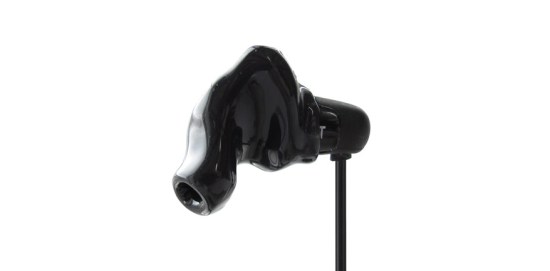
Six different pairs of different-shaped silicon ear tips can only take you so close to a perfect fit. On Tuesday, Swedish headphone outfit Jays joined the likes of Ultimate Ears and other custom headphone outfitters with the announcement of custom ear molds for its q-Jays in-ear headphones.
Jays has partnered with fellow Swedes Bellman & Symfon to execute the individually fitted end of the earphone. Unlike typical custom in-ear monitors, which are cast as a single piece, the custom-fitted silicon tips for the q-Jays Custom will be removable, making it possible to swap them for generic tips or have them refitted every few years.

According to Peter Cedmer, product manager at Jays, the impetus for the q-Jays custom arose from performers requesting custom-fit earphones for live performances. “Live performers are like the Formula 1 drivers of the audio world. They’re an extremely demanding group of customers, but working in close cooperation with them allows us to develop the very best products,” he said in a statement. “With the launch of the q-JAYS Custom we can now offer the very best in this personalized earphone technology to our non-professional customers as well.”
Jays already offers the generic version of the q-Jays (which we weren’t overly fond of) for $179, and will release the custom version in April. Buyers will have to get impressions of their ears made at an audiologist, then send them to Bellman & Symfon to have the silicon tips made. Exact quotes for the tips may vary by location, but Jays will provide a $25 voucher toward the expense with the purchase of the q-Jays Custom.



